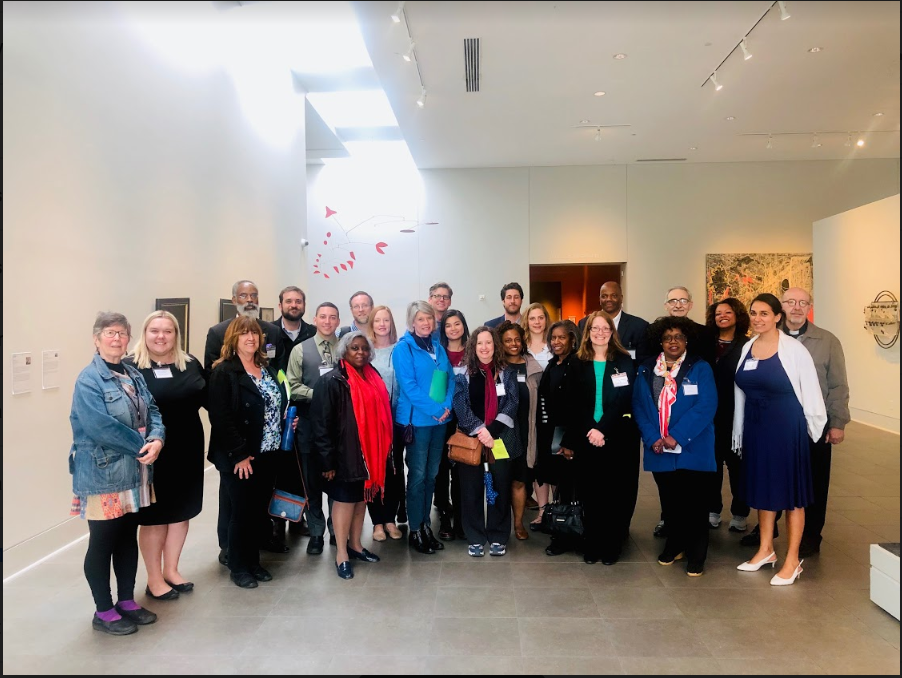|
A press release from the annual Creation Justice Ministries Board Meeting May 13-14 in Flint, Michigan, dozens of representatives of major religious bodies comprising the board of ecumenical membership organization Creation Justice Ministries gathered to pray, learn, and act for water justice.
Since 2014, Flint, Michigan has not had reliable accessible clean drinking water. Although the local government has closed their water and food distribution centers, lead is still present in the water supply. In 2019, most Flint residents still don't trust safe water will flow from the tap. Creation Justice Ministries Executive Director Shantha Ready Alonso spoke to why the board gathered in Flint in 2019: “Collectively, religious communities have had a long-standing presence in Flint: before and after the notorious water crisis. Today, the news cameras have gone away, but communities of faith must continue to renew our relationships in Flint. The city has powerful lessons for faith communities as we consider how to grapple with how we relate to God's gift of water, to racial inequities, to crises in our democracy, and to our nation’s just transition away from extractivism.” Reformed Church in America representative to the Creation Justice Ministries board, Dr. Monica Schaap Pierce said of her experience,"In Flint, signs of hope mingle with evidence of degradation and loss. As I listen to stories of pain and healing, I became very aware of God's redemptive work even in the midst of this crisis." The meeting began with a pre-screening of “Flint: the Poisoning of an American City,” a documentary by David Barnhart and Scott Lansing of Presbyterian Disaster Assistance. This was followed by an environmental justice tour of Flint. The tour guides, Jan Worth-Nelson of East Village Magazine and Pastor Greg Timmons of Calvary and First Trinity United Methodist Church, explained how poverty and race deeply intersect with access to potable water. The board saw how neighborhoods were segregated. In one part of the city, the streets were lined with mansions and in other parts, the homes were deteriorating. Too many members of the undocumented community in Flint stay in falling-apart homes due to fear of detention and deportation. These same families lacked Spanish language materials and government identification that would afford them access to information and services. The group visited a brownfield site where the once booming Chevrolet industry was in its heyday. The expansive factories are now gone, but the far- reaching and seemingly unending concrete remains. There was also a drive-by at the Flint Water Treatment Plant. Much of the tour was also about resilience. The group saw the Flint Culture and Arts Center, a community garden started by a United Methodist community, and a Field House rich in history and current sporting activities: all centers of hope and resilience in the city, particularly helping youth. The tour also stopped by the Flint River to learn about revitalization efforts which have given Flint residents and visitors opportunities to enjoy novel outdoor activities such as kayaking. The board meeting ended the following day with a planning session for Creation Justice Ministries further education, prayer, and justice work on water issues in Flint and beyond.
1 Comment
|
About this BlogThis blog shares the activities of Creation Justice Ministries. We educate and equip Christians to protect, restore, and rightly share God's creation. Archives
July 2024
Categories
All
|
Photo from johndillon77

 RSS Feed
RSS Feed